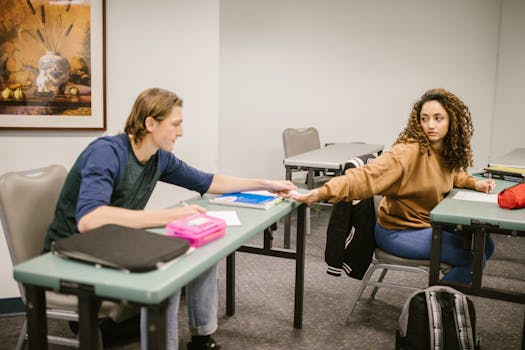The Role of Metacognition in Learning: Teaching Students How to Learn
When it comes to learning, the focus often lies on what is being taught rather than how students are learning. However, recent studies have shown that the way students think about their own learning process can greatly impact their academic success. This type of thinking, known as metacognition, is the ability to reflect on and monitor one’s own thought processes in order to understand and improve them. In this article, we will explore the role of metacognition in learning and how teachers can help students develop this important skill.
The Importance of Metacognition in Learning
Metacognition is, in essence, the ultimate form of self-awareness. In order to be successful learners, students must not only be aware of the content they are learning but also how they are learning it. This includes understanding their own strengths and weaknesses, monitoring their own learning processes, and being able to adapt and adjust their strategies as needed. By being conscious of their own thought processes, students can take control of their learning and become more efficient and effective learners.
The importance of metacognition in learning has been highlighted in numerous studies and has been linked to improved academic performance. In fact, a meta-analysis conducted by researchers found that students who are trained in metacognitive strategies have higher overall academic achievement compared to those who are not. This is because developing metacognition not only helps students understand their own learning but also allows them to transfer these skills to new tasks and subjects.
The Role of Teachers in Teaching Metacognition
The good news is that metacognition is a skill that can be taught and developed. As teachers, we can play a crucial role in helping our students become more metacognitive learners. Here are some strategies that we can implement in our classrooms to promote metacognition:
1. Modeling Metacognitive Thinking
The first step in teaching metacognition is to model it ourselves. As teachers, we should openly discuss our own learning processes with our students, such as how we approach a new concept or what strategies we use to remember information. By doing so, students can see the importance of metacognition and how it can be applied to their own learning.
2. Encouraging Reflection
Reflection is a key component of metacognition. By encouraging students to reflect on their learning, we can help them become more aware of their own thought processes. This can be done through simple activities such as exit slips or journal prompts, where students can reflect on what they have learned and how it connects to previous knowledge.
3. Teaching Explicit Metacognitive Strategies
Explicitly teaching metacognitive strategies can help students develop a deeper understanding of their own learning. Some examples of these strategies include setting goals, monitoring progress, and using self-questioning techniques. By providing students with a toolbox of metacognitive strategies, they can learn to become more self-directed learners.
The Impact of Metacognition on Long-term Learning
Metacognition not only plays a crucial role in academic success but also has long-term benefits for students. By developing metacognitive skills, students can become more independent in their learning and better equipped to face new challenges. They will also have a better understanding of their own learning styles and can make more informed decisions about their future education and career paths.
In addition to academic benefits, metacognition also has a positive impact on students’ emotional well-being. By understanding their own learning processes, students can become more confident and motivated learners. They can also learn to manage their own stress levels and overcome academic setbacks with greater resilience.
In Conclusion
In today’s world, the ability to learn how to learn is essential for success. As teachers, it is our responsibility to not only teach students subject matter but also help them develop the important skill of metacognition. By implementing strategies to promote metacognition in our classrooms, we can equip our students with the tools they need to become lifelong learners. Through metacognition, students can take control of their own learning and unlock their full potential for academic and personal growth.
.









